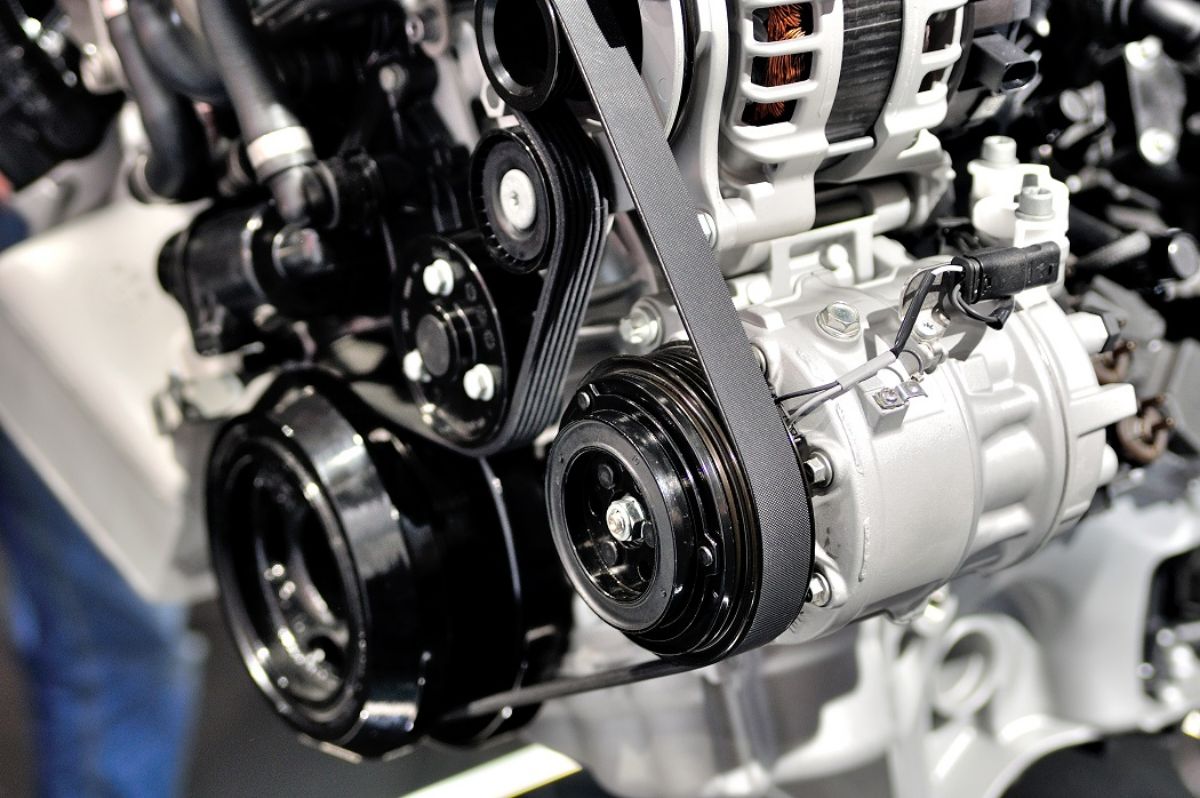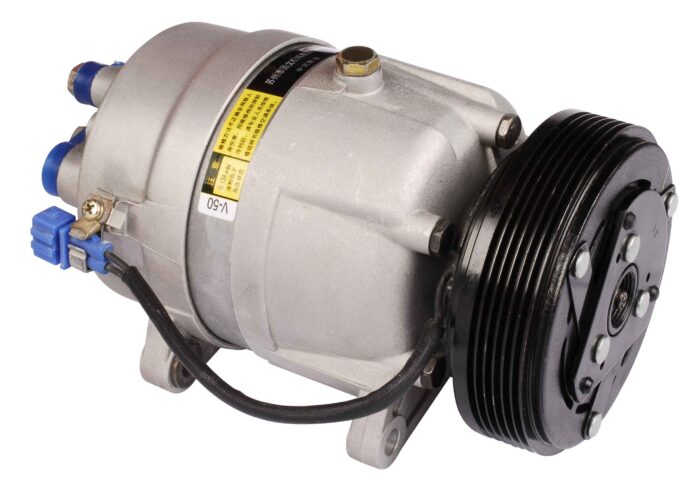As the temperatures rise and the summer heat becomes unbearable, we often turn to our trusty air conditioning units to provide some much-needed relief. But have you ever stopped to think about the key component that makes this cool air possible? That’s right, we’re talking about the air conditioning compressor. While it may not be the first thing that comes to mind when you think about your AC, this unsung hero plays a crucial role in keeping your home comfortable and livable during those scorching hot days. In this blog post, we’ll dive into the uses and importance of an air conditioning compressor, and why it deserves a little more recognition for its hard work.
The Role of the Air Conditioning Compressor: What Does it Do?
The air conditioning compressor may not be the most glamorous part of your AC unit, but it plays a vital role in keeping your home cool and comfortable. So, what exactly does it do?
In simple terms, the air conditioning compressor is responsible for circulating refrigerant throughout the system, enabling it to absorb heat from inside your home and release it outside. It acts as the heart of your air conditioning system, pumping refrigerant under high pressure, which raises its temperature. This high-temperature, high-pressure refrigerant is then passed through a condenser, where it releases heat to the surrounding environment.
By compressing the refrigerant, the air conditioning compressor increases its pressure and temperature, allowing it to absorb more heat from inside your home. This heat absorption process creates the cool air that is circulated throughout your living spaces. Without a functioning compressor, your AC unit would be unable to cool the air effectively, leaving you hot and uncomfortable.
In addition to its cooling capabilities, the compressor also helps to dehumidify the air by removing excess moisture. As the refrigerant circulates, it collects moisture from the air, reducing the humidity levels in your home and improving indoor air quality.
Different Types of AC Compressors and Their Functionality
When it comes to air conditioning compressors, there are several different types available, each with its own functionality. Understanding these different types can help you choose the right compressor for your specific needs.
One common type of AC compressor is the reciprocating compressor. This type uses a piston-cylinder mechanism to compress the refrigerant. It is known for its reliability and efficiency, making it a popular choice for residential air conditioning systems. Another type is the rotary compressor, which uses rotating vanes or blades to compress the refrigerant. Rotary compressors are often used in larger commercial and industrial AC systems due to their high capacity and low noise levels.
There is also the scroll compressor, which uses two spiral-shaped scrolls to compress the refrigerant. This type of compressor is known for its smooth operation and energy efficiency. Additionally, there are centrifugal compressors, which are typically used in large commercial buildings. They use centrifugal force to compress the refrigerant and are known for their high capacity and energy efficiency.
Each type of compressor has its advantages and disadvantages, and choosing the right one for your AC system depends on factors such as cooling capacity, noise levels, and energy efficiency requirements. Consulting with a professional HVAC technician can help you determine the best type of compressor for your specific needs.
Troubleshooting Common Problems with Holden Air Conditioning Compressors
Is your air conditioning compressor giving you trouble? Don’t sweat it! In this section, we’ll discuss some common problems that can occur with Holden air conditioning compressors and provide some troubleshooting tips to help you get your AC system back up and running smoothly.
One of the most common issues you may encounter is a compressor that won’t start. This could be due to a faulty start capacitor or a wiring issue. To troubleshoot, check the capacitor for any signs of damage or leakage and replace it if necessary. Also, make sure all the wiring connections are secure and tight.
Another problem you may face is inadequate cooling or weak airflow. This can be caused by a refrigerant leak, dirty coils, or a clogged air filter. Check for any signs of refrigerant leakage, such as oil stains or hissing sounds, and contact a professional for repairs. Clean the coils regularly to remove dirt and debris, and replace the air filter if it’s dirty or clogged.
If you notice unusual noises coming from your compressor, it could be a sign of a failing motor or loose components. Tighten any loose screws or bolts, and if the noise persists, it’s best to call a professional to inspect and repair the issue.
Remember, if you’re not comfortable troubleshooting or repairing your air conditioning compressor on your own, it’s always best to seek the help of a professional HVAC technician. They have the knowledge and expertise to diagnose and fix any problems effectively and efficiently.
Maintaining and Prolonging the Life of your AC Compressor
Now that you understand the importance of your air conditioning compressor, it’s crucial to know how to maintain and prolong its life. By following a few simple maintenance tips, you can ensure that your AC compressor operates efficiently and lasts for years to come.
First and foremost, regular cleaning is essential. Dust and debris can accumulate on the condenser coils and affect the compressor’s performance. Use a soft brush or vacuum cleaner to remove any dirt or debris from the coils. Additionally, make sure to trim any vegetation around the outdoor unit to ensure proper airflow.
Checking and replacing the air filter regularly is another crucial step. A dirty or clogged air filter can restrict airflow, leading to strain on the compressor. Replace the filter every one to three months or as recommended by the manufacturer.
Regularly inspecting the refrigerant levels is also vital. If there is a refrigerant leak, it can put additional stress on the compressor and affect its performance. If you notice a decrease in cooling efficiency or hear hissing sounds, contact a professional technician to inspect and repair any leaks.
Finally, scheduling annual maintenance with a professional HVAC technician is highly recommended. They can perform a thorough inspection, clean the components, check electrical connections, and ensure that your compressor is in top condition.
Consequences of Neglecting your Air Conditioning Compressor
Neglecting your air conditioning compressor can have serious consequences for both your comfort and your wallet. When you ignore maintenance and fail to address any issues with your compressor, you run the risk of experiencing a complete system breakdown. This means no cool air during the sweltering summer months and potential discomfort for you and your family.
But the consequences go beyond just discomfort. A neglected air conditioning compressor can lead to higher energy bills. When the compressor is not functioning properly, it has to work harder and use more energy to cool your home. This can result in increased energy consumption and inflated utility bills.
Furthermore, neglecting your compressor can lead to costly repairs or even the need for a full system replacement. Without proper maintenance, small issues can escalate into major problems that require expensive repairs. In some cases, a neglected compressor may be beyond repair, and you’ll need to invest in a new system altogether.
The Cost Factor: The Financial Impact of a Failing AC Compressor
As much as we rely on our air conditioning compressors to keep us cool and comfortable, we often forget about the financial impact that a failing compressor can have. Ignoring maintenance or neglecting to address any issues with your AC compressor can result in serious consequences for your wallet.
First and foremost, a failing AC compressor can lead to higher energy bills. When the compressor is not functioning properly, it has to work harder and use more energy to cool your home. This increased energy consumption can lead to inflated utility bills that can quickly add up.
In addition to higher energy costs, neglecting your compressor can also result in costly repairs or even the need for a full system replacement. Small issues that go unnoticed or unaddressed can escalate into major problems that require expensive repairs. In some cases, a neglected compressor may be beyond repair, leaving you with no choice but to invest in a new AC system.
To avoid the financial impact of a failing AC compressor, it’s crucial to prioritize regular maintenance and address any issues promptly. By doing so, you can ensure that your compressor operates efficiently, minimize energy consumption, and avoid unnecessary expenses. Remember, taking care of your AC compressor means taking care of your wallet too.
FAQs
Have some burning questions about your air conditioning compressor? Don’t worry, we’ve got you covered! Here are some frequently asked questions to help you better understand this vital component of your AC system:
Q: How often should I clean or replace my air conditioning compressor?
A: The frequency of cleaning or replacing your air conditioning compressor depends on several factors, such as usage, environmental conditions, and the manufacturer’s recommendations. Generally, it’s a good idea to clean the condenser coils at least once a year and replace the air filter every one to three months.
 Q: What can I do to prevent my air conditioning compressor from overheating?
Q: What can I do to prevent my air conditioning compressor from overheating?
A: Overheating can be a common issue with air conditioning compressors, but there are steps you can take to prevent it. Make sure the outdoor unit has proper airflow by keeping it clear of any obstructions, such as vegetation or debris. Additionally, regular maintenance, including cleaning the coils and checking refrigerant levels, can help prevent overheating.
Q: How can I tell if my air conditioning compressor is failing?
A: There are several signs that your air conditioning compressor may be failing. These include reduced cooling efficiency, unusual noises coming from the compressor, increased energy consumption, and frequent system cycling. If you notice any of these signs, it’s best to contact a professional technician to diagnose and repair the issue.
Conclusion
In summary, your air conditioning compressor may be a hidden hero in your home, but its importance cannot be overstated. It plays a crucial role in keeping your living spaces cool and comfortable during those scorching hot days. Without a functioning compressor, your AC unit would be unable to effectively cool the air or dehumidify it, leaving you hot, sticky, and uncomfortable.


